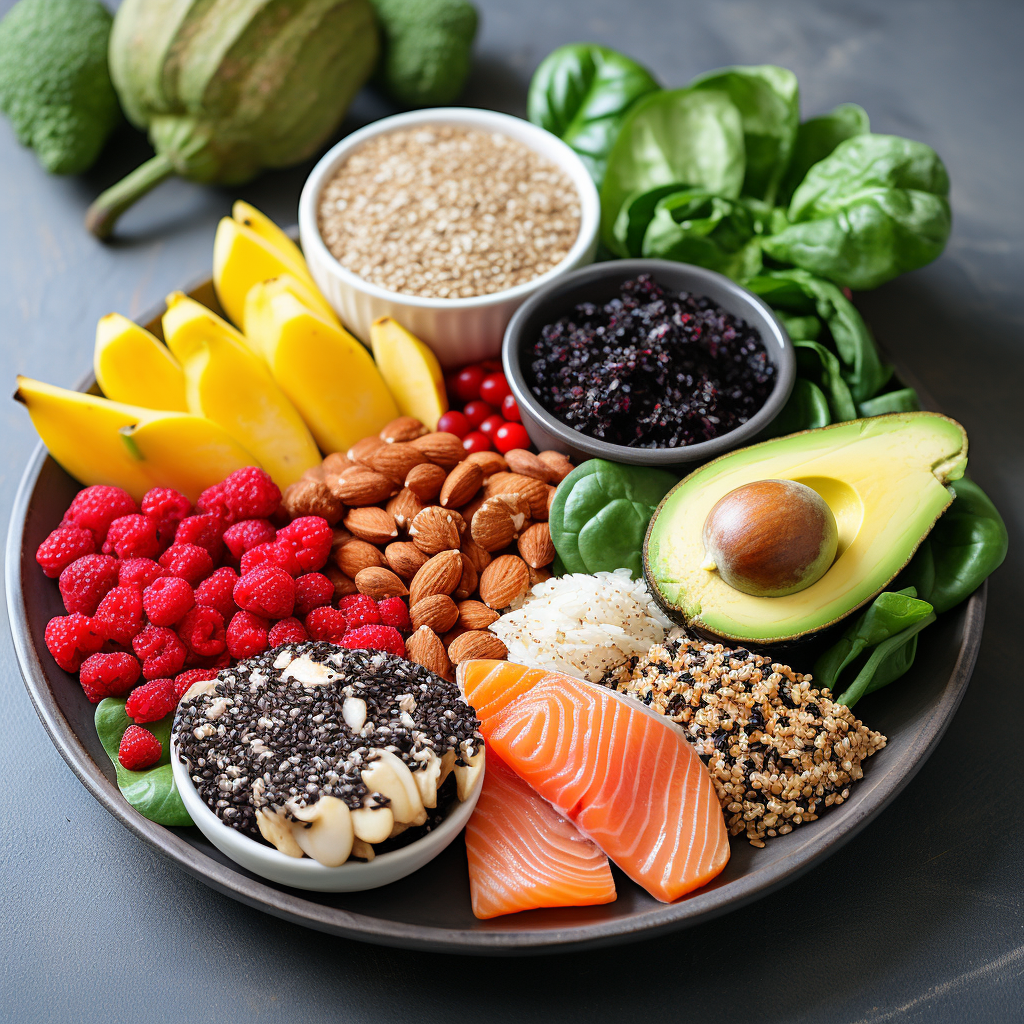
by Elizabeth Redd | Feb 15, 2024 | Fitness
Refueling your body after a workout is crucial for muscle repair, replenishment of energy stores, and overall recovery. The right post-workout nutrition can help reduce muscle soreness, rebuild muscle tissues, and ensure you have the energy for your next workout session. The goal is to consume a combination of protein, to aid in muscle repair, and carbohydrates, to replenish the energy that was used during your workout.
Protein is essential as it provides the amino acids needed for the repair and growth of muscle fibers. Carbohydrates are important because they refill glycogen stores that have been depleted during exercise. Ignoring post-workout nutrition can delay recovery, decrease muscle synthesis, and even lead to fatigue and potential injury. Therefore, it’s important to eat a balanced meal with both macronutrients soon after a workout.
Join Our Community Today and receive exclusive tips and updates that will help you understand the nuances of post-workout nutrition. Ready to kickstart your wellness journey? Sign up for our content now!
The Role of Macronutrients in Recovery and Growth

Macronutrients—carbohydrates, proteins, and fats—each play a specific role in post-workout recovery and growth. Proteins are the building blocks of muscle repair and growth. After intense training, muscles are damaged at a microlevel, and proteins help to rebuild these fibers stronger than before. It is widely accepted that consuming protein after a workout can enhance muscle protein synthesis and promote recovery.
Carbohydrates are equally vital as they restore muscle glycogen, which is the primary fuel source used during moderate to high-intensity exercise. Consuming carbs post-exercise ensures that you have adequate energy stores for future workouts. Fats, while not as critical immediately post-workout, still play an important role in overall health and can aid in absorption of fat-soluble vitamins and provide a longer-term energy source.
It’s not just about the individual macronutrients, but also the timing and the ratio in which they are consumed. A common recommendation is to aim for a ratio of approximately 3:1 or 4:1 carbohydrates to protein. This blend helps maximize glycogen synthesis and muscle recovery. However, individual needs can vary based on the intensity and duration of the exercise, as well as personal fitness goals.
Tailoring Your Post-Exercise Meal Timing
The timing of your post-exercise meal can significantly impact your recovery and muscle growth. A concept known as the ‘anabolic window’ suggests that there is a limited time after training, typically cited as 30 to 45 minutes, during which your body is exceptionally receptive to nutrients. During this period, muscle synthesis can occur at a faster rate, and your body can replenish energy stores more efficiently when provided with the right nutrients.
However, recent research indicates that this window may be wider than previously thought, and that pre-exercise nutrition also plays a role. If you’ve consumed a meal containing adequate protein and carbohydrates before your workout, the urgency for post-workout nutrition diminishes, as the nutrients from the pre-workout meal are still being digested and utilized.
For those who train fasted or have not eaten for several hours before exercise, it is more crucial to consume a post-workout meal soon after training. This meal should include both protein and carbohydrates to aid in recovery and muscle replenishment. Conversely, if you had a meal shortly before exercising, you might have a bit more flexibility with your post-workout nutrition timing.
Ultimately, listening to your body and understanding its signals is key. Some individuals may feel famished and benefit from eating right after exercising, while others may not feel the need to eat immediately. Tailoring your post-exercise meal timing to your individual circumstances can help optimize recovery and contribute to better performance in the long run.
Hydration and Electrolyte Replenishment After Exercise

Hydration is an integral part of post-workout recovery, yet it is often overlooked. Replenishing fluids after exercise is crucial, as sweat loss during physical activity leads to dehydration if not adequately addressed. The amount of fluid needed can vary widely based on the intensity of the workout, the environment (hot or humid conditions), and individual sweat rates.
To adequately rehydrate, it’s essential to consume water after a workout. However, water alone may not suffice, especially after prolonged or intense sessions. This is where electrolytes come into play. Electrolytes, such as sodium, potassium, calcium, and magnesium, are vital for maintaining fluid balance, muscle contractions, and nerve function.
After exercise, replenishing these electrolytes is just as important as ingesting fluids. Natural sources like bananas for potassium, dairy products for calcium, nuts and seeds for magnesium, and a pinch of salt added to your meal or snack can help restore electrolyte levels. For those engaged in extended exercise exceeding an hour, especially in hot climates, an electrolyte-replacement beverage may be beneficial to aid in quicker recovery of electrolyte balance.
Monitoring urine color can be a practical approach to gauge hydration status. A light, straw-colored urine typically indicates proper hydration, while a dark color suggests the need for more fluids. Maintaining hydration and electrolyte balance after a workout not only supports immediate recovery but also prepares your body for the next round of physical activity, ensuring you’re well-equipped to perform at your best.
Post-Workout Meal Ideas for Different Dietary Preferences

After understanding the importance of what to eat after a workout, it’s helpful to have meal ideas that cater to various dietary preferences. Whether you’re following a plant-based diet, a high-protein regimen, or a gluten-free lifestyle, there are nutritious options to optimize your recovery.
For those on a plant-based diet, combining legumes with grains can provide a complete protein profile. A quinoa and black bean salad, for instance, is not only protein-rich but also offers a good mix of carbohydrates and fiber. Tofu or tempeh stir-fries with an abundance of vegetables over brown rice can also serve as an excellent post-workout meal.
High-protein dieters might opt for grilled chicken or salmon with sweet potatoes and steamed broccoli. These components offer a balanced mix of protein, carbs, and micronutrients. Greek yogurt with nuts and berries can be a perfect post-workout snack, providing protein along with antioxidants and healthy fats.
For those following a gluten-free diet, a rice bowl with lean beef, mixed vegetables, and a sprinkle of cheese can be both satisfying and nourishing. Alternatively, a smoothie made with gluten-free oats, protein powder, a banana, and a handful of spinach provides an easy, digestible way to refuel.
Remember, it’s not just about the macronutrients; including a variety of fruits and vegetables in your post-workout meals can deliver essential vitamins and antioxidants to aid in recovery. Tailoring your post-exercise meal to fit your dietary needs ensures that you can refuel effectively, no matter your eating preferences.
Supplements vs Whole Foods in Post-Workout Recovery

When considering the debate between supplements and whole foods for post-workout recovery, it’s vital to weigh the pros and cons of each option. Supplements, such as protein powders or BCAA concoctions, offer convenience and rapid absorption, which can be particularly appealing after an intense gym session. They can help to quickly repair and build muscle tissue, especially when time is of the essence.
However, whole foods provide a spectrum of nutrients that work synergistically to enhance recovery. Foods like eggs, lean meats, quinoa, and fresh produce not only supply the protein needed for muscle repair but also provide vitamins, minerals, and other compounds that contribute to overall health. Whole foods also offer dietary fiber, which supports digestive health—an aspect not to be overlooked when considering overall well-being.
It’s also important to consider that while supplements can fill in the gaps of a diet, they should not be the sole source of post-workout nutrition. A balanced meal after exercise can lead to better long-term health outcomes and is a cornerstone of a holistic approach to wellness.
In conclusion, while there’s a place for supplements in a fitness regimen, they are best used in conjunction with a diet rich in whole foods. By understanding the value each brings to the table, you can make informed decisions that align with your health goals and dietary preferences.
Ready to kickstart your wellness journey? Sign up for our content to receive exclusive tips and updates. Take the first step towards a healthier, happier you! Join Our Community Today.

by Elizabeth Redd | Feb 15, 2024 | Health
Nutrition is the cornerstone of a healthy lifestyle, serving as the fuel that powers all of our bodily processes. It’s about more than just the foods we eat; it’s about how our bodies break down and utilize these substances to promote growth, repair, and energy. The best definition of nutrition encompasses the complex interplay between the nutrients we consume and our body’s needs, ultimately influencing our overall health and well-being.
Nutritional science delves deep into the macro and micronutrients that are essential for our survival. Macros, such as carbohydrates, fats, and proteins, provide the energy our bodies need to function effectively, while micronutrients, including vitamins and minerals, support a myriad of physiological processes. However, nutrition isn’t just about the physical aspects; it also includes the psychological and social elements that influence our food choices and eating habits.
By understanding the best definition of nutrition, we can make informed choices that align with our health goals. Whether you’re looking to improve your energy levels, manage your weight, or prevent chronic diseases, a solid grasp of nutritional principles is vital. Ready to kickstart your wellness journey? Sign up for our content to receive exclusive tips and updates. Take the first step towards a healthier, happier you! Join Our Community Today.!
Nutrition Unwrapped: More Than Just Food

Often, when we think of nutrition, our minds go directly to the food on our plates. However, nutrition unwrapped is a more expansive concept, transcending the mere act of eating. It’s about the quality and variety of foods we consume, the timing of our meals, and how our body assimilates and uses each nutrient. This holistic approach considers how different foods can affect our mood, energy levels, and even cognitive functions.
Moreover, nutrition involves understanding how our individual needs may change throughout our lives – from infancy to old age – and how our diet should adapt to these changing circumstances. Factors such as lifestyle, activity level, and health status all play a crucial role in shaping our nutritional requirements.
It’s also important to acknowledge that nutrition is deeply interconnected with other aspects of life, including cultural practices, socioeconomic status, and environmental factors. The accessibility of nutritious food, the impact of advertising and media on our food choices, and the significance of traditions and customs all contribute to the broader narrative of what nutrition means in our daily lives. Thus, the best definition of nutrition is one that is inclusive, adaptive, and personalized, reflecting the multifaceted relationship between food, body, and environment.
The Crucial Role of Nutrients in Body Function

The human body is an intricate system that relies on a symphony of nutrients to function optimally. Each nutrient has a specific role, whether it’s providing energy, building and repairing tissue, or regulating chemical processes. Carbohydrates, fats, and proteins supply the fuel our bodies need for energy. Vitamins and minerals, though not energy-providing, are essential in supporting a myriad of physiological functions that maintain our health and prevent disease.
For instance, calcium and vitamin D are crucial for maintaining strong bones, while antioxidants like vitamin C and E help protect our cells from damage. B vitamins play a pivotal role in energy metabolism, and iron is vital for transporting oxygen in the blood. The absence or deficiency of these nutrients can lead to a range of health issues, from fatigue and weakened immunity to more severe conditions like anemia and osteoporosis.
It’s also vital to understand the concept of bioavailability, which refers to the proportion of a nutrient that is actually absorbed and utilized by the body. Factors such as the source of the nutrient, its chemical form, and the presence of other substances can all influence bioavailability. For example, the iron found in plant-based sources is less readily absorbed than the iron from animal products, unless it’s consumed with vitamin C, which can enhance its absorption.
Ultimately, maintaining a balanced diet rich in a variety of nutrients is key to supporting the complex systems that keep us alive and well. It’s not just about consuming the right amount of calories, but also about ensuring those calories are packed with the nutritional value necessary for the body’s diverse and continuous demands.
Balanced Diets and Nutritional Synergy

A balanced diet is more than just a tool for weight management; it’s a fundamental component for a healthy lifestyle. The concept of nutritional synergy underscores the importance of consuming a varied diet. Nutritional synergy occurs when the interactive effects of various foods and nutrients are combined to produce a total effect that is greater than the sum of the individual parts. This means that the nutrients in our food can work together to enhance each other’s absorption and efficacy in the body.
For example, the fat-soluble vitamins A, D, E, and K require dietary fats for optimal absorption. Eating a salad with a healthy fat source like avocado or olive oil dressing can therefore enhance the body’s ability to absorb these vitamins. Similarly, combining iron-rich foods with those high in vitamin C can boost iron absorption, beneficial for those at risk of anemia.
On the other hand, certain compounds can inhibit the absorption of nutrients. For instance, phytic acid found in grains and legumes can reduce the absorption of zinc and iron. Understanding these interactions is vital for creating a diet that maximizes nutrient intake.
It is essential to include a variety of foods in one’s diet to ensure an adequate intake of all necessary nutrients. A diet rich in fruits, vegetables, whole grains, lean proteins, and healthy fats provides a broad range of nutrients that work together to promote health and well-being. By focusing on food quality and nutrient density, individuals can support their body’s needs and enhance their overall health through the power of nutritional synergy.
How Nutrition Influences Health and Longevity
The link between nutrition and health is undeniable, and its influence on longevity is profound. A well-nourished body is better equipped to prevent and fight diseases, maintain optimal body functions, and age gracefully. The best definition of nutrition encompasses not just the consumption of food but its subsequent impact on our cellular health, metabolic balance, and overall longevity.
Research indicates that diets rich in antioxidants, such as those found in berries, leafy greens, and nuts, can help reduce cellular damage caused by free radicals. This damage is a natural part of aging but can be exacerbated by poor diet and environmental factors, leading to chronic diseases and accelerated aging. By contrast, nutrient-dense diets promote cellular repair and regeneration.
Furthermore, a diet low in processed foods and sugars is associated with reduced inflammation in the body. Chronic inflammation is a root cause of many age-related diseases, including heart disease, diabetes, and Alzheimer’s. Nutritional choices that emphasize whole foods, fiber, and healthy fats contribute to a well-functioning immune system and a reduced risk of inflammation.
Eating patterns such as the Mediterranean diet, which is high in fruits, vegetables, whole grains, olive oil, and lean protein, have been linked to increased life expectancy and a lower incidence of chronic diseases. These dietary patterns support not only a longer life but also a better quality of life, with improved physical and cognitive function in later years.
In conclusion, nutrition plays a critical role in influencing health and longevity. A diet that is mindful of nutritional synergy and rich in whole, unprocessed foods can pave the way for a long, vibrant life. Through conscious dietary choices, individuals can significantly impact their healthspan, the period of life spent in good health, as well as their lifespan.
Adopting a Holistic View of Nutrition

Ready to kickstart your wellness journey? The journey to optimal health is not solely about the foods we eat; it involves a holistic view of nutrition that integrates the physical, emotional, and environmental influences on our eating habits. Adopting a holistic view means recognizing that our relationship with food is complex and deeply rooted in personal experiences, culture, and accessibility.
It’s essential to consider not just what we eat, but also how we eat. Mindful eating practices encourage us to be present during meals, savoring flavors, and listening to our body’s hunger and satiety signals. This practice can prevent overeating and enhance the enjoyment of meals. Additionally, the holistic approach includes understanding the source of our food, aiming for sustainability, and choosing organic or locally sourced produce whenever possible.
Stress management also plays a significant role in a holistic nutrition strategy. Chronic stress can lead to poor dietary choices and disrupt digestive functions. Incorporating stress-reducing activities like yoga, meditation, or even simple breathing exercises can help maintain a balanced approach to nutrition and overall well-being.
Lastly, a holistic view appreciates the power of community and support in maintaining healthy habits. Joining a group or finding a nutrition coach can provide accountability and motivation. Engaging with a supportive community can also offer shared knowledge, recipes, and encouragement to continue on the path of healthful eating.
In embracing a holistic approach to nutrition, we nourish more than just our bodies; we feed our minds and souls, fostering a deeper connection to ourselves and the world around us. Sign up for our content to receive exclusive tips and updates. Take the first step towards a healthier, happier you. Join Our Community Today.










